I travel a lot and have been to several countries in Asia, Europe, and Scandinavia. My favorite place to go, though, is Scandinavia.
The countries there have vast nature, plenty of activities, and most importantly, they are so clean!
One of the countries in Scandinavia that I love is Norway. It is a beautiful country with gorgeous buildings, endless nature, and many opportunities for outdoor activities.

GIF: by ThisGuyFawkes, via Tenor
If you have ever considered moving to Norway there are many attractive reasons to do so.
Are you ready for this?

From: Giphy
You will actually save money on some basic necessities living there, to start with. And, if you like being active, Norway is your oyster.
Besides that, you will be in a country that values cleanliness and the environment. Not to mention education.
If all of that sounds good to you, you're on the right track.
There's so much more!
Why You Should Consider Moving to Norway
Do you like having inexpensive healthcare, free schools, and living somewhere that has a low crime rate?
Then moving to Norway could be right for you.
Norway is part of Scandinavia, which besides Norway consist of Denmark, Sweden, Iceland, and Finland. The country is called the "Land of Vikings" and has a vast array of islands and fjords, or narrow inlets with steep cliffs created by glacial erosion.

GIF: by ThisGuyFawkes, via Tenor
If you love sightseeing, or outdoor living, Norway is perfect for you.
Did you know they have a monarchy? But, probably not like you're thinking:
Norway is best known for its government which administers many services such as schools and healthcare. The official government of Norway is a Parliamentary Constitutional Monarchy.
What does that mean?
It means that they have a Parliament, a monarch who acts somewhat in the same role as a U.S. President, a Prime Minister, a Supreme Court.
I bet you're wondering what that government looks like:
From: Giphy
The government is best described as the Nordic model of democratic socialism. The system combines free market capitalism and social benefits that allow for a rich, healthy economy and social safety nets and services for the people.
Their economy is mixed with the government owning 50% of domestic businesses and employing 35% of the workforce. Most of the major services the government offers are paid through taxes.
What does that me for you?
They have a high tax rate, but it pays off in the services you receive.
Now that you've learned about the country and are ready for more affordable education, cheaper healthcare, and inexpensive schools in a beautiful setting, are you ready to pack your bags?
Before you do...
...Let's learn a little more about the country so you can make the right decision.
'THERE'S NO PLACE LIKE HOME'
What are some differences between living in Norway and living in the US? For starters, if you lived in Norway you would be 44% less likely to be unemployed.
Wow! That's reason alone to move to Norway!
Here are some other ways living in Norway differs from living in the US:
Here's a video with more info on the differences:
PROS AND CONS OF MOVING TO NORWAY
When you're considering moving to Norway, there are many advantages. But it's also good to remember the disadvantages.
Sure, it's considered one of the happiest countries in the world, but moving to Norway isn't for everyone.
PROS
CONS
Here's what you need to know about the advantages:
THE UPSIDE
Norway has some excellent advantages if you're considering moving there. If you decide on moving to Norway, you will enjoy the following differences in your way of life.
CASH, CREDIT AND PUBLIC BANKING NUMBERS
You will notice when moving to Norway how much easier it is to do your banking.
All banking is done online and transferring money is a lot easier. Regardless of the bank you go to, you can type your friend's account number and the bank transfers the money.
Zip, click, done.
Banks in the US are starting to get a hang of this and offer transfers via e-mail and phone number, but until it catches on with everyone, it's just no match for how efficient Norway's banking system is.
The banking efficiency goes hand-in-hand with its low crime rate.
Ready to have your mind blown?
Because crime is so low, Norwegians don't feel the need to keep bank account numbers private.

From: Giphy
Keep in mind, though:
If you are looking to buy a home or need a car loan, you may have to wait months or even years. Norway has its own method of determining their customer's credit-worthiness.
Your credit score doesn't transfer.
BE IT EVER SO HUMBLE, TALKING ABOUT YOUR NEW HOME
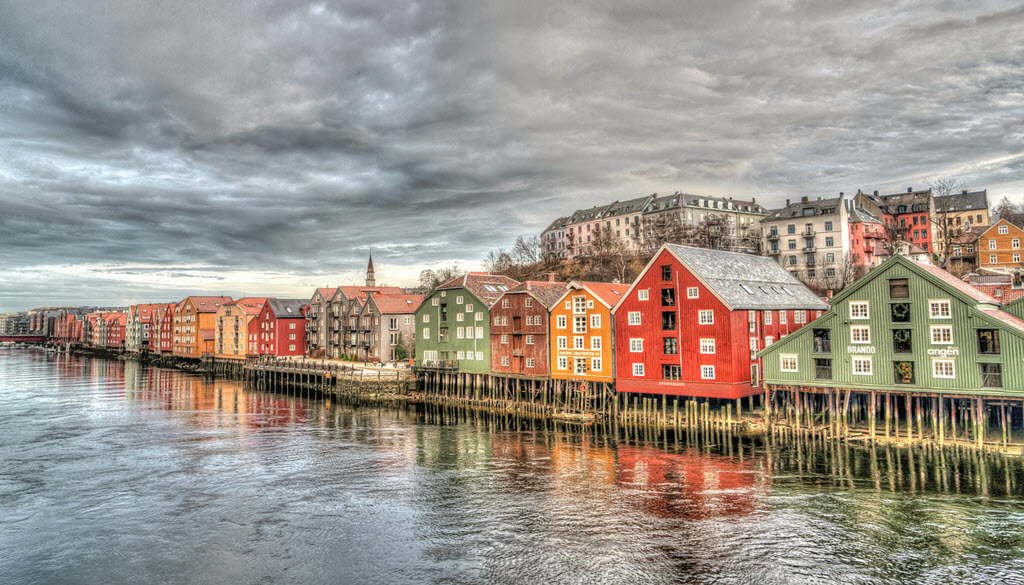
Image: by Mariamichelle, via Pixabay
Norway prides itself in a high standard of living and it shows in their modern and charming houses and apartments. Plus Norwegians take great pride in their homes and take very good care of them.
What does this mean for you?
When you buy a house or rent an apartment you know it's a high-quality home that the previous owner took care of and took great pride in.
If you're lucky you might get a home with bright and inviting colors!
A DREAM COME TRUE FOR OUTDOOR LIVING

Image: by Pawel Fijalkowski, via Pexels
Once you decide on moving to Norway, expect to learn to ski right away.
If you're an outdoor person, the country is a dream come true.
You can enjoy some of these activities for several months out of the year:

From: Giphy
Norway is considered the home of skiing and you can ski six months out of the year.
Not only that...
but they have this wonderful law called "Allemannsrett."
This means that you can pitch your tent or hike anywhere in Norway. Being able to pitch your tent anywhere comes in handy, especially if you're travelling throughout Norway, which can be expensive.
Not only will you have ample opportunities to be active, but you may be able to have more time to do the activities.
Why?
If you're on a local contract, you will have five weeks of vacation per year.
That's just the start, you can also take off for all of the national holidays. If you like your vacation time then moving to Norway might have just gotten more attractive!
(Designer_start) place in callout box:
Here's some of those national holidays:
That's a lot of time off...
the best part?
You get paid for some of it!
On top of that, the country requires Norwegians to take the whole month of July off and it's called "Feriepenger." Keep in mind, though, that it isn't paid.
This is definitely a country that works to live.
ABOUT OUR LITTERING PROBLEM...
They don't have one.
Norwegian cities are clean, and locals pride themselves in their cleanliness. In fact, Oslo is one of the cleanest cities in the world!
Wondering how they do that?
In Norway, they care about the environment and their impact on it. Recycling is a way of life. Their cities have fresh air, a clean environment, and the big cities have public transportation and rentable bikes.
It's a part of their culture.
When moving to Norway, expect to recycle and pick up your litter. If you enjoy having alternative methods of transportation besides a car and you live in one of the larger cities, you will love Norway.
THE ELEPHANT IN THE ROOM:

Image: by rawpixel.com, via Pexels
These are examples of things you'll never worry about if you decide on moving to Norway.
Curious?
Norway has a very high-quality healthcare system for their residents and the national system covers it. The exception is dental and vision, which aren't covered.
After living and working in Norway for one year, you will be expected to contribute to the National Healthcare System. So some of it does come from your pocket.
But it sure beats a huge medical bill!
TIPS
For inexpensive healthcare choose the public system over the private system. Private healthcare is funded by patient fees and is much more expensive.
Norway does have a deductible, which is normally only around $500.
Once you reach your deductible, everything is covered. Besides this, doctor's visits are around $40 each time, not including prescriptions.
It's a lot cheaper than the US.
PASTORAL DOESN'T BEGIN TO COVER IT
Norway is one of the safest and most peaceful countries in the world. In fact, Police don't even carry guns! Robberies are rare too.
Unlike the US, that has one of the highest rates of incarceration in the world, Norway has extremely low incarceration rates. You can be sure that if you live in Norway you will feel safer and rarely worry about crime.
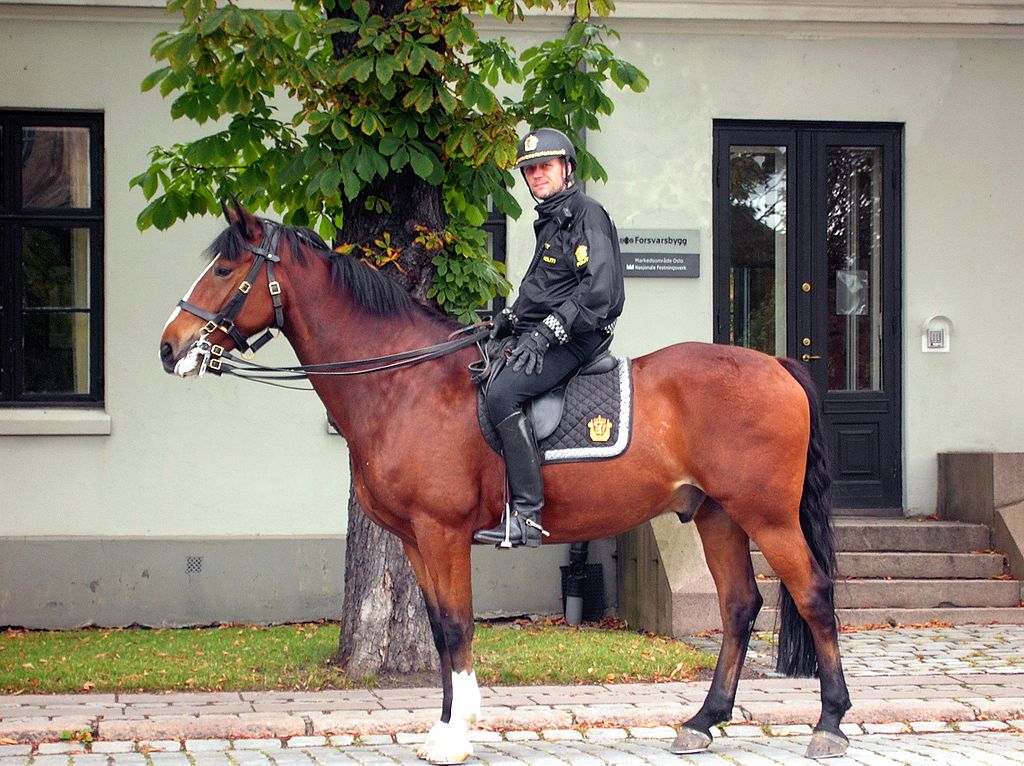
Norwegian mounted policeman, Image: CC BY 3.0, by Grzegorz Wysocki, via Wikimedia Commons
Here's the kicker:
Because of the low crime rate, Norway has a big honesty policy.
For example, if you leave your purse or wallet at a grocery store, you could return a few days later and it will still be there! Sometimes if you don't have the correct cash for a purchase, if you're a regular the cashier may let you pay what you can and make it up the next time.
Norwegians trust each other and it shows.
LOVE LEARNING? READ ON!

Image: by George Dolgikh, via Pexels
Norway places a great priority on quality education because Norwegians believe that an excellent education and a high quality of living go hand in hand. Because of this, they have many top-notch schools.
Plus, the best part:
All of their colleges and universities are free, even for non-citizens. If you go to college in Norway, you won't have to worry about expensive student loans.
THE DOWN SIDE
Although living in Norway has a lot of perks, it also has its downsides. It's important to keep the following in mind before you decide on making the big move there.
TAXES
First, let's talk about the taxes in Norway. There are a lot!
And things are taxed that may surprise you.
What kind of taxes should you expect in Norway?
That's a lot of taxes!
Plus, this is important: Everyone gets a tax card at the beginning of the year. You're supposed to receive them automatically, but sometimes you don't receive them on time and you're stuck without them, waiting for them to come in the mail.
Or worse, you just moved here and can't receive one until your visa finishes processing.
If this happens, you are taxed at 50%. Yes- 50%!
The plus side is you receive a lot of it back come tax time, but it isn't fun if it happens to you.
A bonus is that when it comes to tax time, your tax returns are automated. You will no longer need to figure out a confusing tax code.
SUN SCHEDULE
In Norway, the days are shorter in the winter and longer in the summer.
Plus the sun doesn't come out very often. When it does, Norwegians lose their minds and go outside, even if it is 0 degrees Celsius (32 degrees Fahrenheit).
Get used to this, and also get used to the lack of sun during the winter. It is worse in the Northern region.
Here's how to make up for that a bit:
To help with the lack of sun, you can purchase an indoor sun lamp, which mimics the sun.
If you're used to seeing the sun all the time, this can be quite an adjustment and sometimes results in seasonal affective disorder.

Image: by Mircea Lancu, via Pexels, altered
Having a sun lamp will help with the long winters.
It will also help to adopt the Norwegian way of thinking regarding the winters.
They don't see winter as a season to endure, but as a season to enjoy. They even have a word for it, called "Koselig," or a "sense of coziness." People light candles, light fires, drink warm beverages, and sit under blankets.
They also have a sense of community around the winter. In other words, they schedule many community activities and festivals during winter with the attitude that they're all in it together.
That sure beats getting depressed over the lack of sun!

From: Giphy
WHAT DOES IT COST TO LIVE, DAY TO DAY?
If you decide on moving to Norway, expect to pay more for a lot of things. Although some jobs pay more than similar jobs in the US, the cost of living is higher.
Almost everything is more expensive in Norway, so even if you're getting a higher salary, you're paying more for some everyday necessities and activities.
For example, here is the cost of some basic things in Norway:
WEATHER
Do you dislike the rain, cold, and snow?
Would you rather be in a mild climate?
Then Norway is not right for you. Their winters are long, the temperatures are freezing, and it can get very windy. Plus the weather is wet year-round.
But, what about the summers?
Their summers are cool and pleasant, though, but that is only three months out of the year. If you can't stand the cold then you won't be happy in Norway.
The southern coastal areas do have higher temperatures, but during the coldest months of January and February, that temperature only gets up to an average of -5 degrees Celsius (23 degrees Fahrenheit). That's very chilly if you were wanting mild temps!
The cold weather is definitely not for everyone and before you move to Norway, decide whether or not it is something you can handle.
Still with us? Great!
WHAT TO CONSIDER BEFORE MOVING TO NORWAY (FROM AN EXPERT)
American writers and travel bloggers Megan Starr and Andrea (who simply goes by Andrea) from inspiringtravellers.com have suggestions on what to consider before making the big move.
WORKING IN NORWAY
First, moving to Norway, you will need to have a job lined up.
So what are the best jobs to look for? You might be surprised to find out that jobs that usually pay well in the US pay as much or less in Norway.
The difference though?
Norway has a higher cost of living so although skilled jobs like Engineering and Medicine pay well, the salary doesn't go as far because so many things are more expensive.
Also, you will want to choose a job that you see yourself in for at least a year, because jobs in Norway only pay pension if you have been with the company for at least a year.
What jobs do pay a lot more in Norway than in the US?
Regardless of the job you have, you will probably not work for more than 40 hours per week.
Norway has shorter working hours, normally an average of 7.5 hours per day with a half-hour lunch. They also pay overtime if you work more than 40 hour per week.
Another plus:
You are not expected to answer emails during non-working hours.
TIPS
Norway doesn't have a minimum wage. Instead, it has numerous trade unions across many professions and enterprises. Get a job that is part of a trade union and has a collective agreement. This way, you will most likely have a better work environment and higher pay.

From: Giphy
DO THEY SPEAK ENGLISH IN NORWAY?
One of the first challenges people face when moving to a new country is the language.
This most certainly applies when moving to Norway. The Norwegian language, known as "Norsk," is a hard language to learn.
Most Norwegians speak English but they may not want to in all situations.
Also, keep this in mind:
If you work for a Norwegian company they may expect you to speak Norwegian. So when moving to Norway, expect to learn the language.
An excellent way to get started in learning the language is to take local Norwegian classes, watch local TV shows with Norwegian subtitles, and listen to the local radio station to get used to the dialect.
FOOD AND BEVERAGES

Norwegian Smørbrød, Image: CC BY 2.0, by Seansie, via Wikimedia Commons
Norway is not part of the EU and that matters when it comes to food. Why? The country doesn't have as many imports as their neighbors who are part of the EU.
Because of this, some food you find in the grocery store may be lower-quality and sometimes you may find rotten food!
What does that mean for you?
It doesn't mean that you have to settle on lower-quality food all the time. You can find decent food, you just need to know where to look. For example, there are stores in Oslo that have better quality food at a lower price.
However, food box delivery is gaining popularity in Norway, and the country does have a great selection of salmon, cheeses, berries, desserts, and of course, beer!
Speaking of beer...
Norway also has activities that are centered around alcohol and hours when you can buy alcohol. Here are some examples:
PRE-DRINKS
Alcohol is expensive in Norway.
To get around this, Norwegians have "pre-drinks."
Let me break that down for you:
That means that before they go out for drinks, Norwegians enjoy at least four rounds store-bought drinks that are usually cheaper than bar drinks. That way, they can enjoy their alcohol without breaking the bank.
RUSS

Screen grab via embedded YouTube video
Russ is the rite of passage for High School graduates.
It usually happens from the end of April to May 17th. During this time, students dress up in bright pants, decorate a bus, and party on the bus for three weeks.
PURCHASING ALCOHOL? WATCH THE CLOCK, AND THE CALENDAR!
You can only purchase alcohol on certain days and certain hours.
The hours are usually Monday to Friday from 10 am to 6 pm and Saturday from 8 am to 3 pm. You will quickly get used to this schedule, especially if you're planning a party.

From: Giphy
DRESS
During the winter, you won't worry so much about being fashionable. Instead, you'll be dressing for the weather. This means a goose parka, Norwegian sweater, or skiing jacket.
Come summer, though, expect to be fashionable.
In Norway, fashionable means:
Clothes like jean shorts or pants, solid color T-Shirts, and Converse high-top sneakers.
All in the same color of course.
RULES AND REGULATIONS
Before moving to Norway, it will be important to understand the basic rules and regulations of the country. Here are some essential ones to know.
BASIC RULES
Norway is different in important ways to the US.
Know these rules before moving there and you'll have a smoother transition.
UNSPOKEN RULES
Every country has them, and Norway is no different:
Conformity rules: if you're a free spirit who does things your way, you may not be comfortable in Norway.
Megan Starr says that the country is probably the most conformed in the world.
Women dress the same and if someone stands out it means that they have a different colored sneaker. Anything beyond that, and people consider you "odd." If you don't care what people think then it will be easier for you.
However, if you're looking to make friends and fit in, expect to conform.
As for another shocker:
Norwegians rarely complain.
This is an advantage if you're talking to your friend on the street, but this cultural norm can be a challenge if you're talking to a customer service agent about something you bought and want to complain about it.
No, really, check this out:
Megan Starr said that when she called a customer service department to complain about a late delivery, the agent on the other line didn't know what to do and seemed confused.
The poor agent had probably rarely heard complaints. If you move to Norway, get used to rarely complaining.
Here are some other important unspoken rules:
HAVING AND RAISING CHILDREN
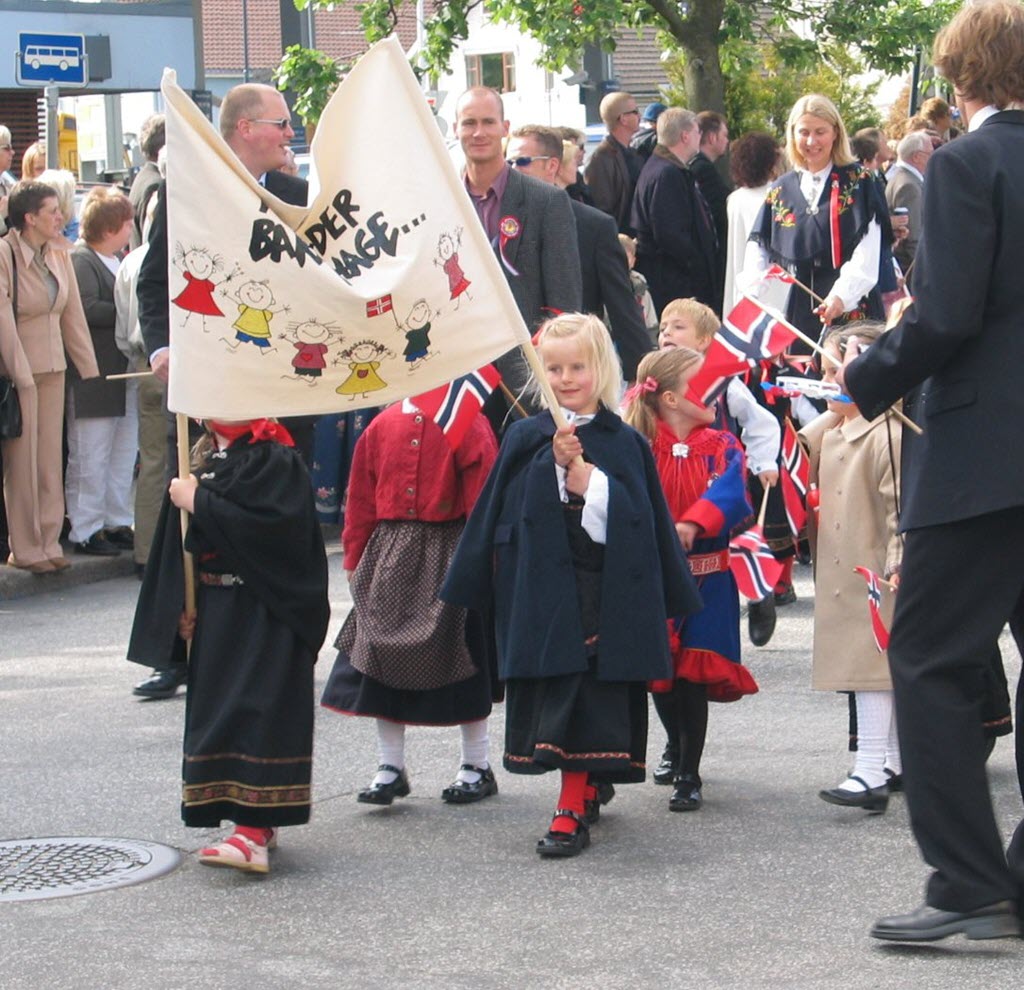
Image: Public Domain, by Ranveig, via Wikipedia
When you're deciding whether or not you're moving to Norway, the advantages go up if you have kids. Norway is a great place to be for parents.
It may be hard to comprehend, but...
From the time children are born, they are covered by the social safety nets, that means insurance.
Doctor's appointments for your pregnancy are free as long as you're using the public health system.
Also, Norway pays maternity and paternity leave. It isn't a small amount either!
The parents are paid 100% for the first 47 weeks or 80% for 57 weeks.
If you don't qualify for maternity or paternity leave, you can receive lump-sum payments for maternity and adoption.
Here are some other benefits:
THE BEST CITIES TO LIVE IN (IN NO PARTICULAR ORDER)
Before moving to Norway it's good to pick a city that is right for you.
It's also necessary to consider some factors, including cost of living, quality of life, safety, and conveniences such as access to the internet.
Here are the five best cities to live in according to nomad.com. Their stats are below, including their score for livability.
Ready?!?
TRONDHEIM
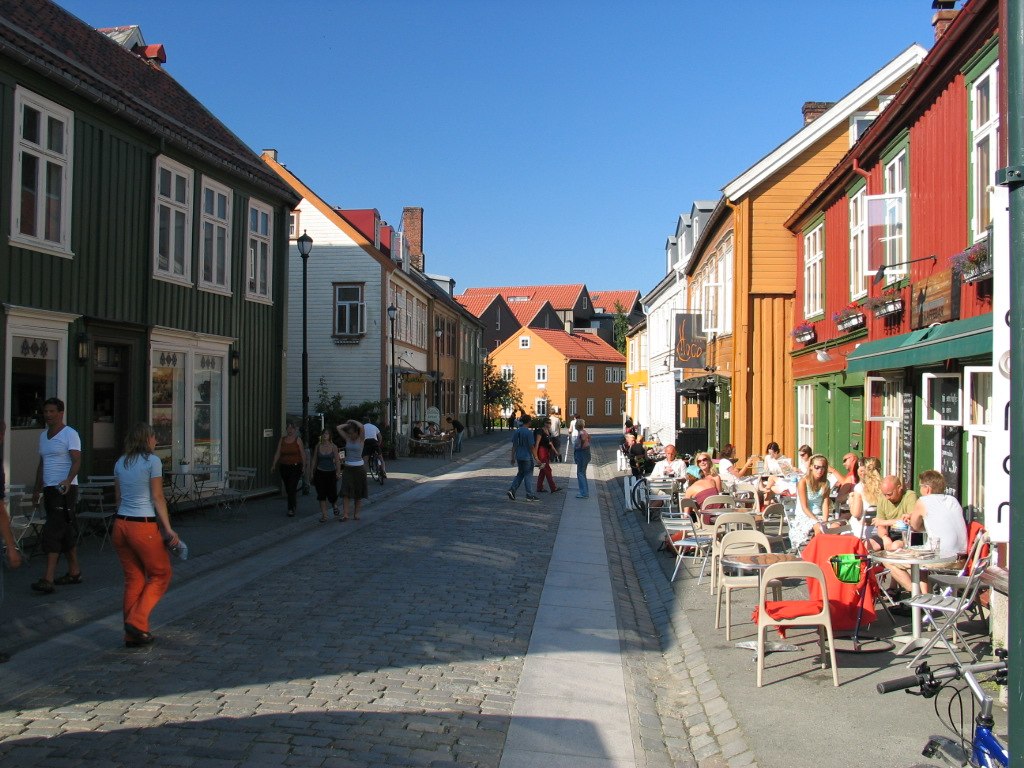
Image: CC BY-SA 2.5, by HuBar, via Wikimedia Commons
Based on the factors below, Trondheim has a score of 2.46 out of 5 for livability. The cost of living is an average of $3,577 per month.
Here are some of its scores:
Air Quality
Safety
wAlkability
hospitals
Places to work
friendliness to foreigners
tolerance
wi-fi
ac and heating
quality of life
ALESUND
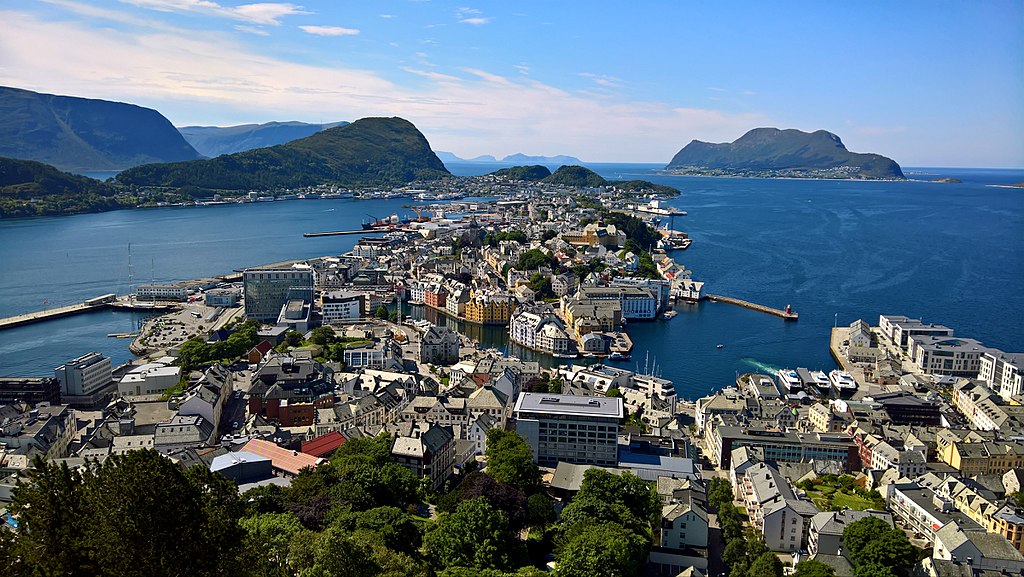
Image: CC BY-SA 4.0, by Eplemoser, via Wikipedia
The next city on the list, Alesund has a score of 2.28 out of 5 for livability. The average cost of living is the lowest on the list at $3,339 a month.
Here are some of its scores:
Air Quality
Safety
wAlkability
hospitals
Places to work
friendliness to foreigners
tolerance
wi-fi
ac and heating
quality of life
BERGEN
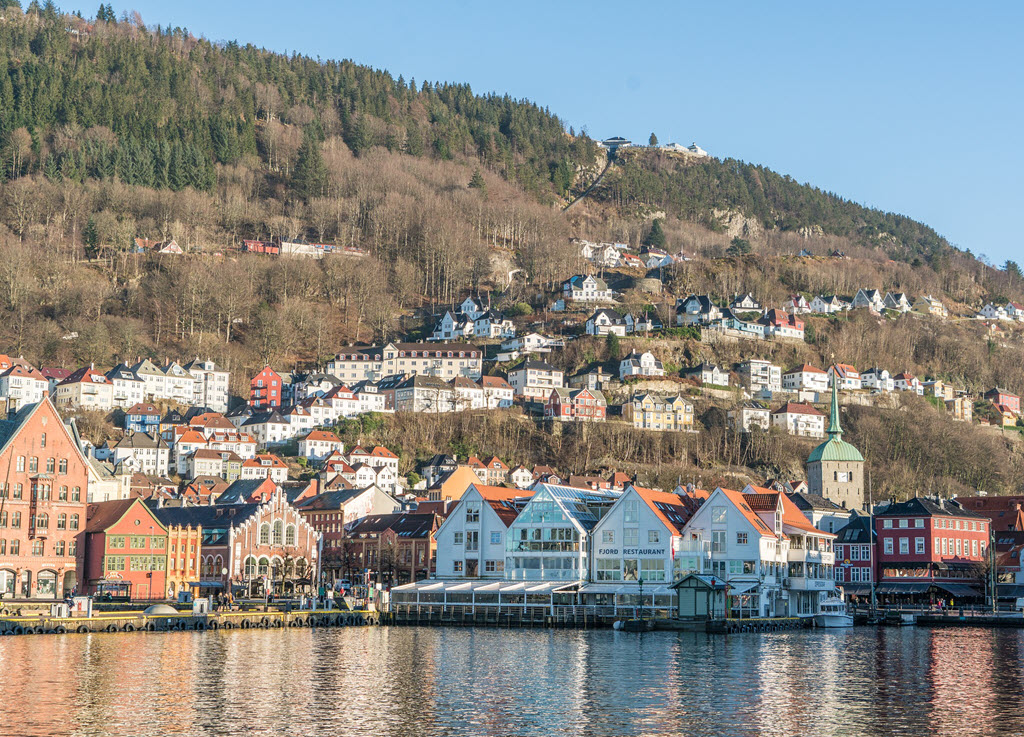
Image: by Mariamichelle, via Pixabay
Bergen is the next city on the list and it has a score of 2.26 out of 5 for livability.
It is also called the "Gateway to the Fjords" and is a very beautiful city. Its average cost of living is $4,012 a month.
Here are some of its scores:
Air Quality
Safety
wAlkability
hospitals
nightlife
peace
happiness
traffic safety
quality of life
OSLO
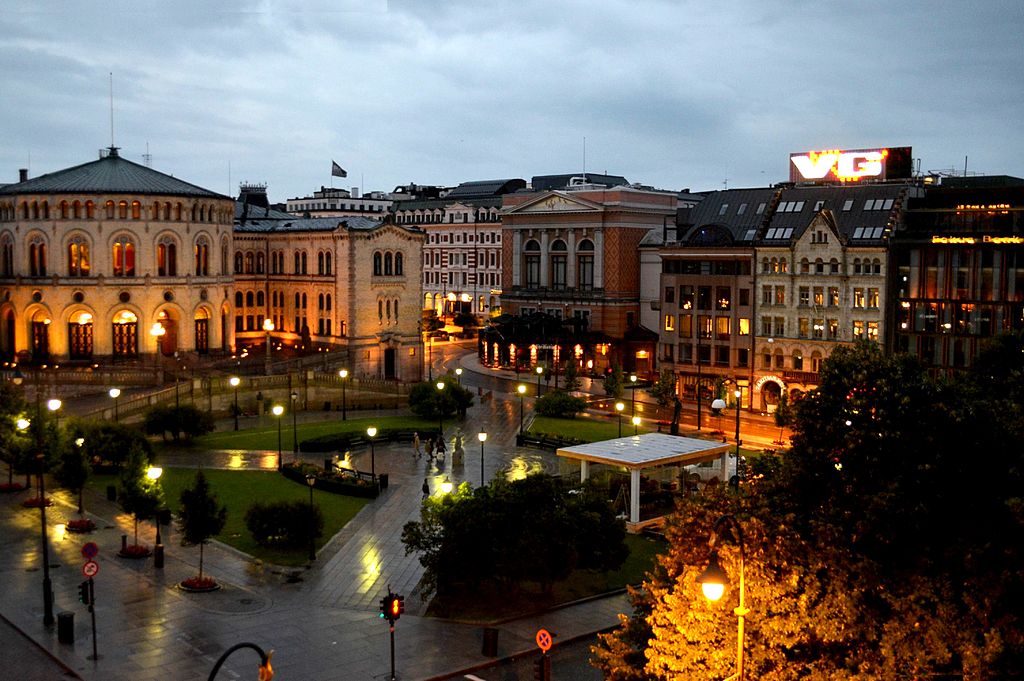
Image: CC BY-SA 3.0, by Ignaz Wiradi, via Wikimedia Commons
One of the biggest cities in Norway and its capital, Oslo has a score of 2.15 out of 5. Its average cost of living is the third highest on the list at $4,399 per month. Here are some of its scores:
Air Quality
Safety
wAlkability
hospitals
nightlife
peace
happiness
traffic safety
quality of life
TROMSO
Even though it's one of the top five cities, Tromso has a score of 1.83 out of 5. It's still on the list because it has a lot of strengths, including internet, safety, walkability, traffic safety, happiness, and hospitals, which all have scores of 5 out of 5. Further, Tromso has the second highest cost of living on the list at $5,041 per month.
Here are some of its scores:
- Air quality: 5/5
- Safety: 5/5
- Walkability: 5/5
- Hospitals: 5/5
- Happiness: 5/5
- Nightlife: 4/5
- Traffic Safety: 5/5
- Peace: 1/5
- Quality of Life: 3/5
ARENDAL
With the lowest score and highest cost of living on the list, Arendal still made the list because it still has some important strengths when you're deciding on where to live in Norway.
For example, they have high scores on safety, walkability, traffic safety, happiness, and healthcare.
Still, Arendal has a score of 1.32 out of 5 because it has low scores on being a peaceful city, places to work from, cost of living, and weather. Speaking of cost of living, it's an average of $6,409 per month.
- Air quality: 4/5
- Safety: 5/5
- Walkability: 5/5
- Healthcare: 5/5
- Happiness: 5/5
- Nightlife: 3/5
- Traffic Safety: 5/5
- Peace: 1/5
- Quality of Life: 3/5
How to Relocate to Norway with the Least Amount of Headache
The most important thing to plan when moving to Norway is your relocation.
If you do it correctly and follow the rules, it will go a long way in preventing headaches and complications.
Here are the most important parts:
- The legal requirements
- cost of living
- where you will work
- how to set up your finances
- healthcare
- where you will live
Legal requirements
There are only two legal ways to live in Norway as a US Citizen.
What are they?
You can either be a skilled worker or a direct family member of a Norwegian citizen.
If you have a job lined up, you will need a visa before you move. In addition to this, each type of job varies in its visa requirements.
For example, there are different rules for Norwegian companies, a Norwegian branch of an international company, or if you're self-employed. A great resource to find out your requirements is UDI.
Cost of living
Before moving to Norway, be aware of the cost of living and know how much everything costs.
Since it will take a few months to make money after you move, then make sure you have at least some disposable income to help you get started and get on your feet.
Job
In order to legally move to Norway, you have to have a job lined up.
The issue you will run into is that a lot of jobs are already filled, and you may have a hard time getting in the door because Norway likes to hire in country or hire Europeans over people of other nationalities.
To have an advantage over other candidates, learn the language so you look more attractive to a hiring manager.
Here's three excellent sites that have English cross-listings:
Setting up your finances
Besides working and having a place to live, setting up your finances is the most important thing to do before moving to Norway.
A great resource to use is Transferwise. This service allows you to open a borderless multi-currency account.
The account allows you to manage your money in 27 currencies. In addition to this, you can get a debit card that connects to your account. You can also transfer money anytime from your Transferwise account to your account in Norway.
Tip:
Use Transferwise when exchanging currency to save on inflated exchange rates!
Norway has a lot of banks to choose from, starting with their local banks. They also have international banks you can use. The plus side is that opening an account in Norway is very easy. Here are some banks to choose from:
- Nordea
- Norges Bank
- DMB ASA
- Citibank
- RBS
- Santander
Healthcare
Before you move to Norway, or as soon as you arrive, make sure you have your doctor lined up.
The healthcare is great, but if you don't have a doctor, then you will have to wait to take advantage of what they offer. The best place to start is the yellow pages.
Also, if you know any expats or other Norwegians, ask around for referrals.
Tip:
You can only change your doctor twice a year, so make sure the doctor you choose is one you will be happy with.
Home
When you're looking for a place to live, plan ahead because finding a home in Norway can be difficult and time-consuming. This is especially the case in small towns, where there are fewer rentals. However, in those same small towns you may be able to find a small house for 1,500 Swedish Krona per month.
This comes out to only $161.78 per month!
While Oslo is a more ideal place to live, if you're looking to live somewhere inexpensively, these are the best cities:
- Hedmark
- Telemark
- Oppland
- Ostfold
- Sarpsborg
Travel Arrangements
You have everything lined up. You have a job, a place to live, and even some disposable income.
Now comes the next part: moving to Norway!
How do you do this easily and smoothly?
Here are some tips:
Travel during the spring or summer.
When Fall hits, it's already becoming colder and in some places the snow starts.
April or May is the best time because the weather is pleasant, tourist season hasn't started, and rainfall is at its lowest.
All of this makes it an easier and nicer time to move.
Since you're moving across the Atlantic, you will probably not be able to put all of your belongings in suitcases.
If you're shipping anything overseas, check with Norway's consulate and know ahead of time what you can and cannot ship.
Here are some resources to help you get that couch overseas:
Are You Ready to Move to the Land of the Vikings?

Flickr
Norway is a beautiful country that takes care of its citizens and values family, education, and healthcare.
If you move there, you won't have to worry about huge bills for basic services. It is also an outdoor-driven country that has many opportunities to be active outside.
However, they do have high taxes, a lack of sun in the winter, cold weather, and a high cost of living.
If those things don't bother you, then Norway may be right for you.
The country has more advantages than disadvantages. If you like being outside, staying active, having your needs taken care of and living in a clean country, Norway might be the right move.
And if you decide that moving to Norway is right for you, good luck and Ha Det!
Featured Image: License: CC0, by Manolo Franco, via Pixabay

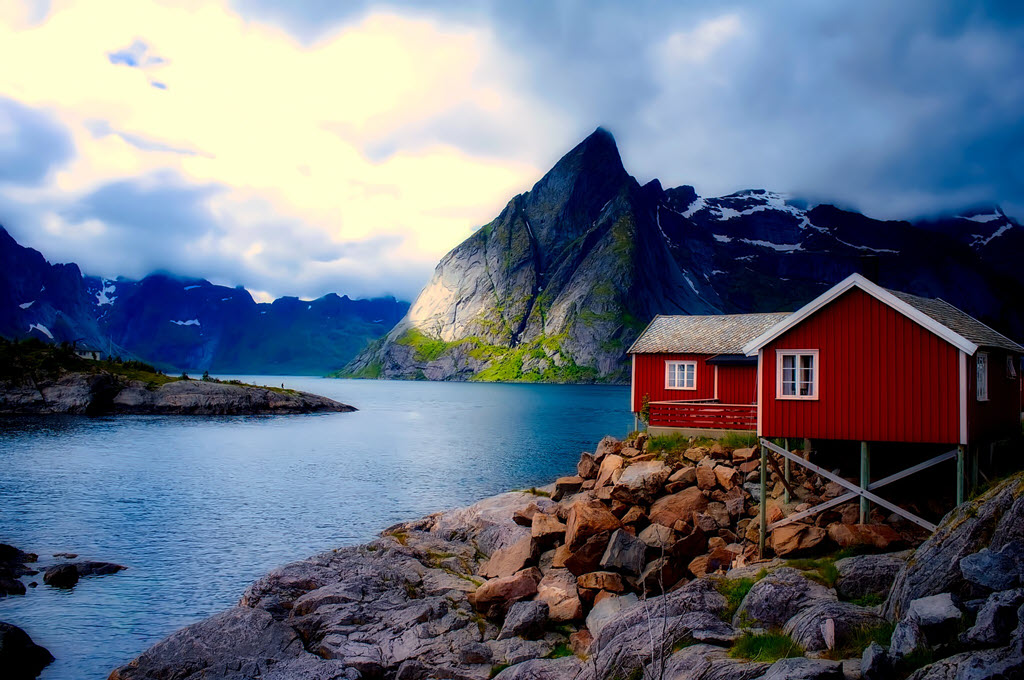
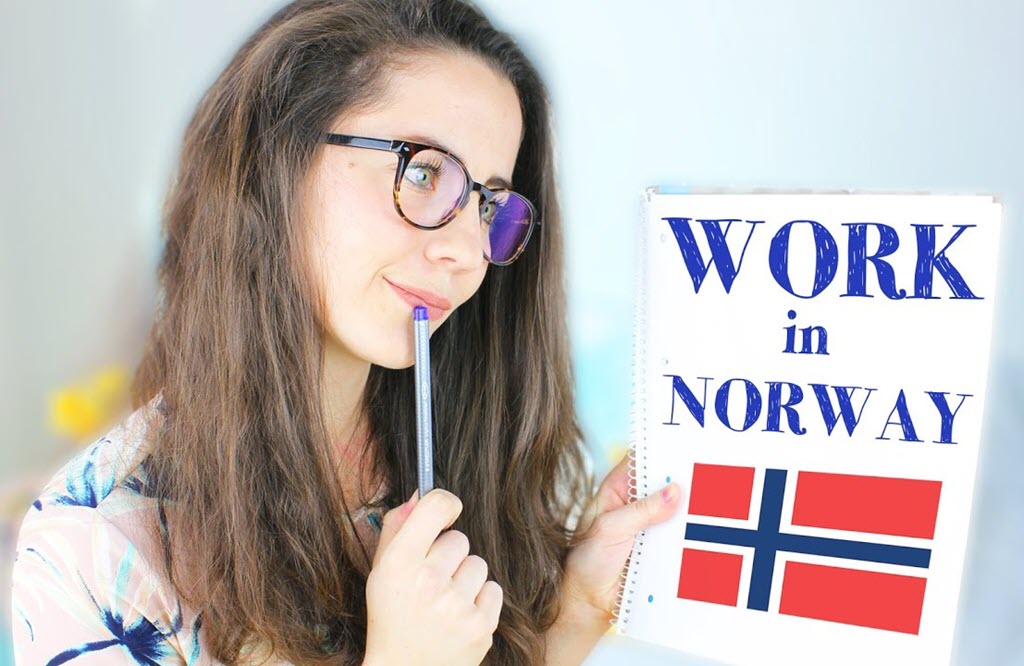

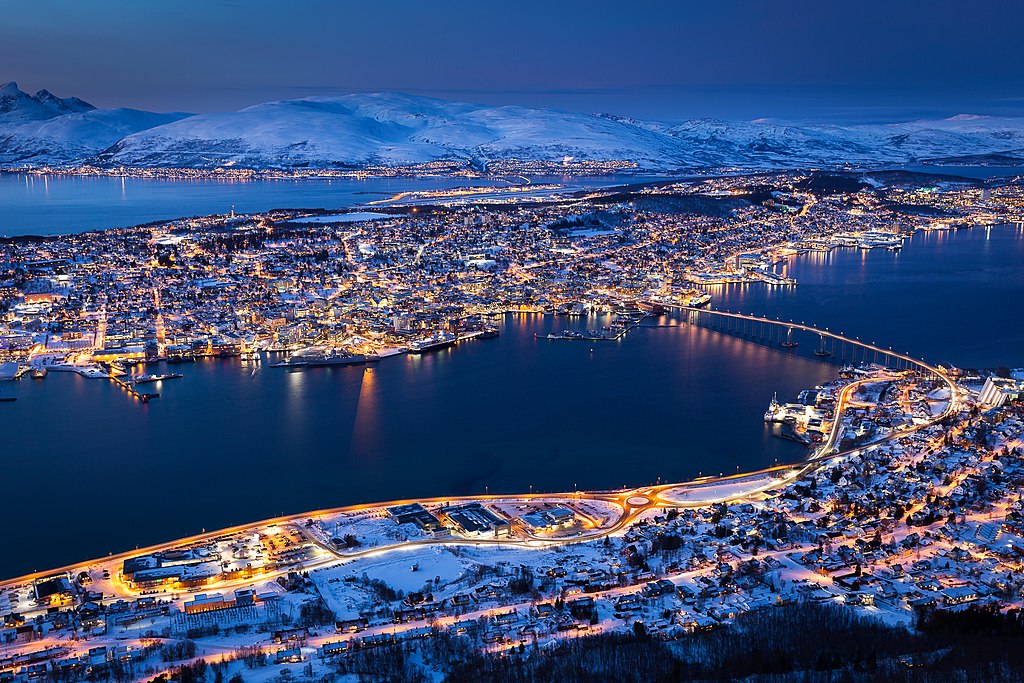
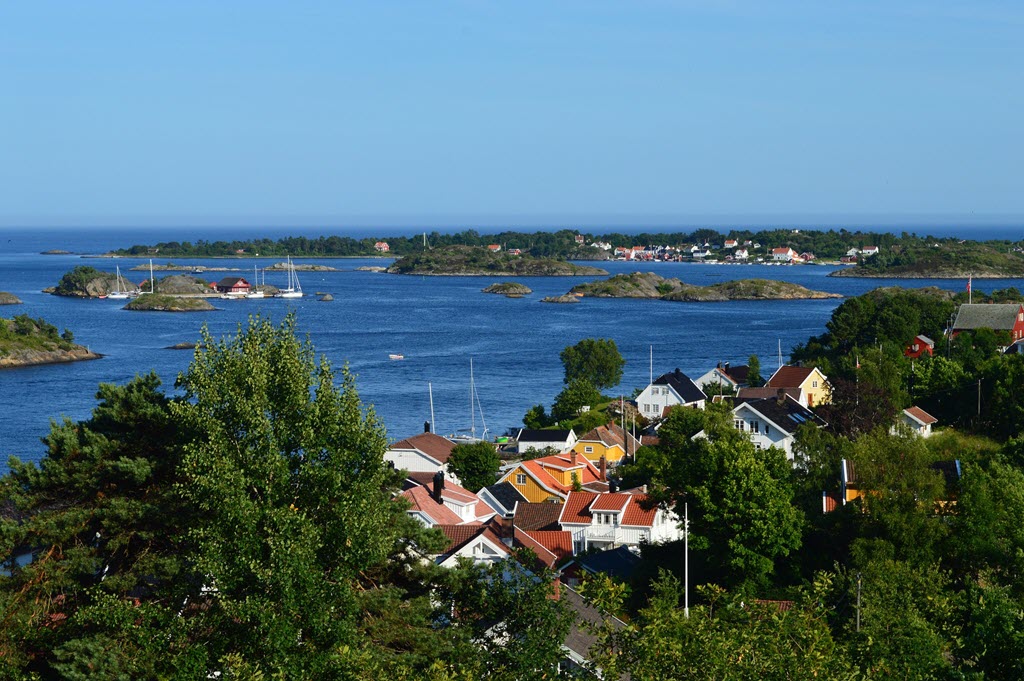
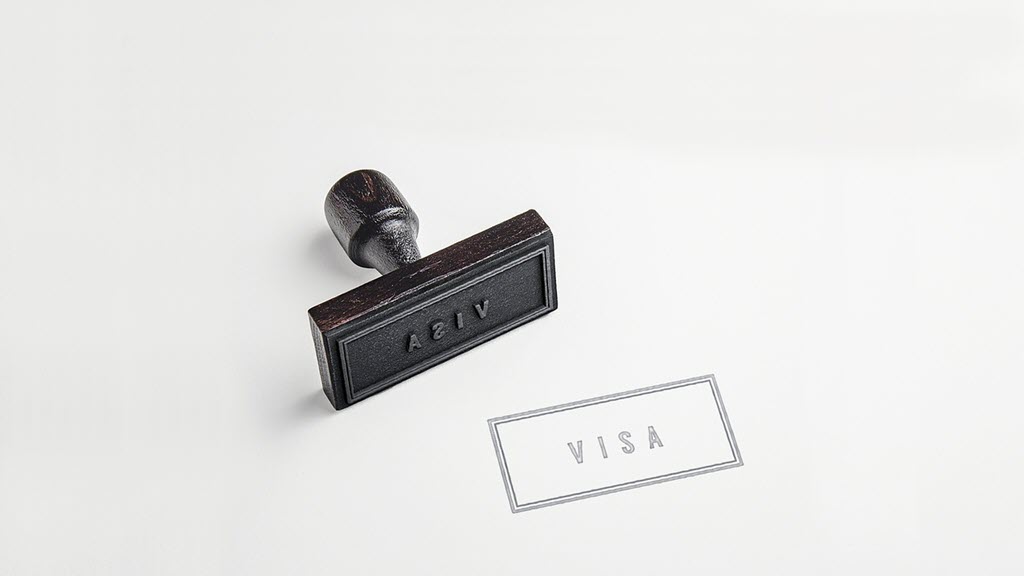

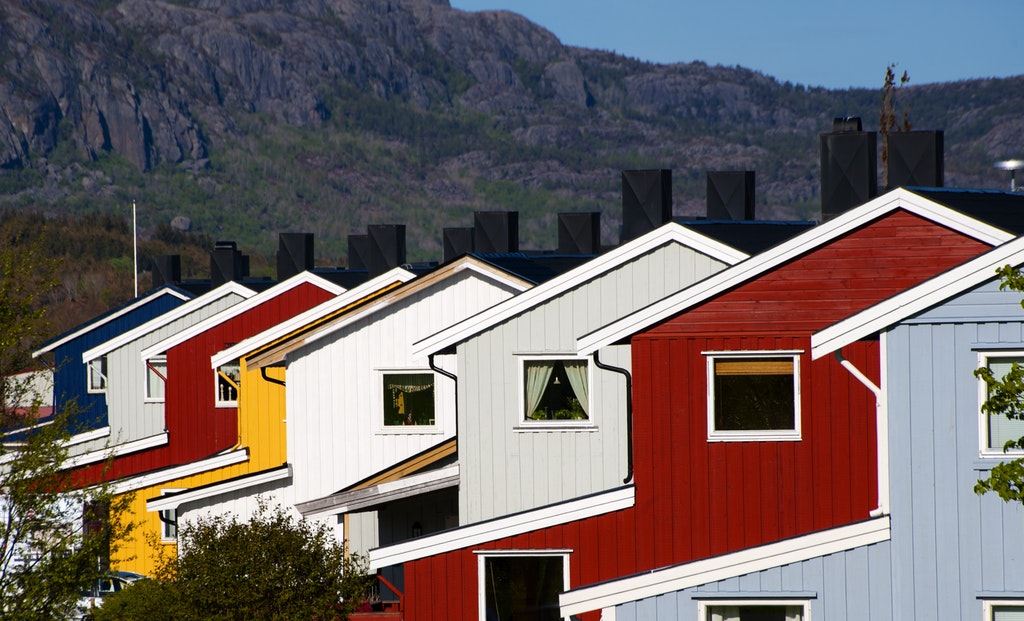
Leave a Reply